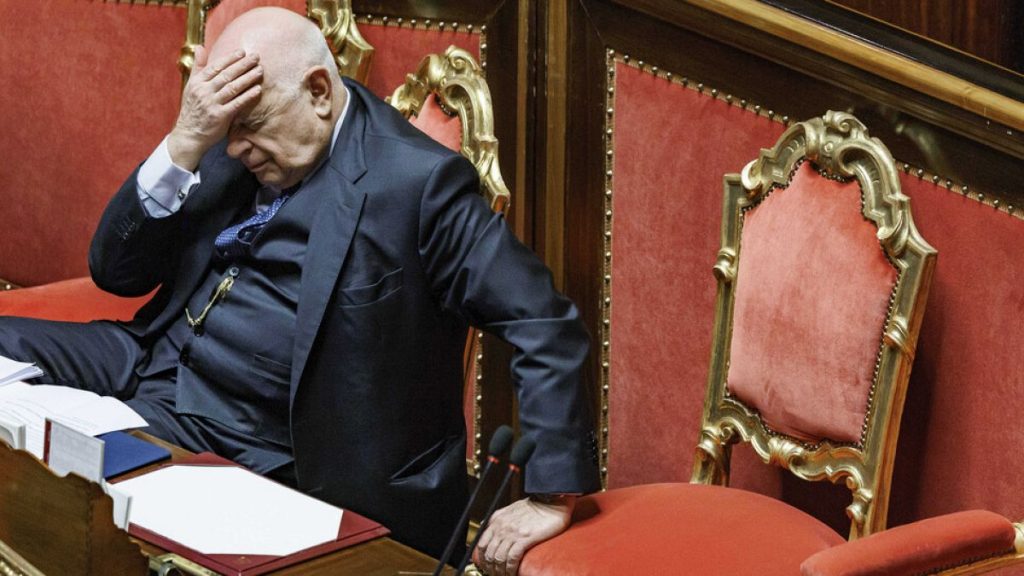The arrest and subsequent release of Libyan warlord Ossama Anjiem, also known as Ossama al-Masri, has sparked a political firestorm in Italy and raised serious concerns about the country’s relationship with Libya and its handling of international justice. Anjiem, who heads the Tripoli branch of the Reform and Rehabilitation Institution, a network of detention centers with a notorious reputation for human rights abuses, was arrested in Turin, Italy, under an International Criminal Court (ICC) warrant for alleged war crimes and crimes against humanity committed at the Mitiga prison in Libya, beginning in 2011. However, an Italian appeals court swiftly overturned the arrest, citing a procedural error – the failure to inform the Italian Justice Minister prior to the arrest – and ordered Anjiem’s release. This move has been met with widespread condemnation from opposition parties, human rights organizations, and Libyan activists.
The rapid release and subsequent repatriation of Anjiem to Libya aboard an Italian secret service aircraft have fueled accusations of political maneuvering and a prioritization of political expediency over justice. Critics argue that the Italian government, led by Prime Minister Giorgia Meloni, acted to protect its close ties with the Tripoli-based Libyan government and to avoid scrutiny of its own migration policies, which rely heavily on Libyan cooperation in intercepting migrant boats. The potential embarrassment of a trial at The Hague, exposing Italy’s complicity in the documented abuses within Libyan detention centers, is seen as a key factor driving the government’s decision to release Anjiem. This incident has put a spotlight on the complex and often controversial relationship between Italy and Libya, highlighting the potential conflicts between upholding international law and pursuing national interests.
The Italian Justice Minister, Carlo Nordio, has come under intense pressure to explain the circumstances surrounding Anjiem’s release. Opposition lawmakers have accused the government of hypocrisy, contrasting their hardline stance on human traffickers with their apparent willingness to facilitate the return of an individual accused of war crimes and crimes against humanity to Libya. The controversy has deepened existing concerns about the Italian government’s commitment to human rights and its willingness to cooperate with international legal institutions like the ICC. The demand for parliamentary inquiries and explanations from Prime Minister Meloni underlines the gravity of the situation and the potential damage to Italy’s international reputation.
Human rights organizations and Libyan activists have expressed dismay and disbelief at Anjiem’s release. They argue that this decision not only denies justice to the victims of his alleged crimes but also emboldens perpetrators of human rights abuses in Libya. The swiftness and secrecy surrounding the release have further fueled suspicion and raised concerns about the influence of Libyan militias on Italian policy. These militias, which control the flow of migrants attempting to reach Europe through Libya, wield significant power and are often implicated in the abuses taking place within migrant detention centers. The incident raises troubling questions about the extent to which political considerations have overridden legal obligations and the pursuit of justice.
The release of Anjiem also underscores the challenging dynamics at play in the Mediterranean migration crisis. Italy’s reliance on Libya to control migration flows creates a complex interdependence, where human rights concerns are often overshadowed by political and practical considerations. The EU’s financial support for Libyan authorities, intended to stem migration, has inadvertently empowered militias involved in human rights abuses, creating a perverse incentive structure. Anjiem’s case serves as a stark example of how these dynamics can undermine efforts to hold perpetrators of human rights violations accountable and perpetuate the cycle of abuse.
The incident involving Ossama Anjiem has exposed the fragility of international justice mechanisms and the potential for political interests to override legal obligations. It has also highlighted the need for greater scrutiny of the relationships between European countries and Libya, particularly regarding migration policies and the funding of Libyan authorities. The controversy surrounding Anjiem’s release underscores the ongoing challenges in balancing national interests with the pursuit of justice and the protection of human rights in the context of the complex and often volatile political landscape of North Africa and the Mediterranean. The case serves as a cautionary tale about the potential consequences of prioritizing political expediency over adherence to international law and the pursuit of justice for victims of serious crimes.














